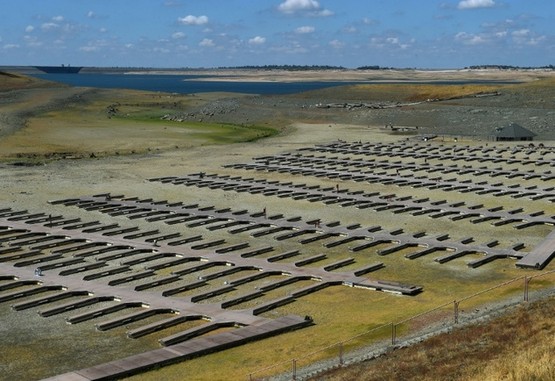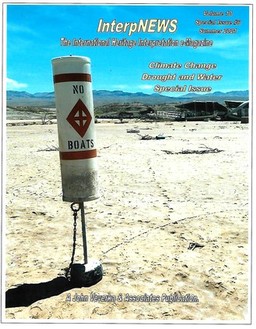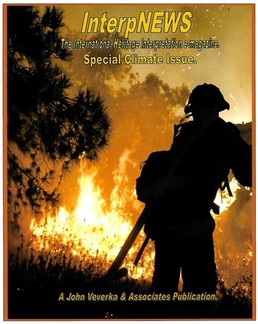John Veverka & Associates
Main menu
- Home Page
- Our Range of Services
- Separator 2
- Interpretive Coaching
- Interpretive Planning
- Interpretive Plan Outline
- Interpretive Training
- John Veverka Resume
- Qualifications
- NEW Advanced Interp. Text Book
- Separator 11
- InterpNEWS
- Separator 12
- Library
- Expert in Interpretation
- JVA NEWS, Courses and Updates
- Certificates
- Separator 47
- Planning/Design of Interpretive Panels
- Separator 48
- Interpretive Writing
- Separator 49
- Interpretive Writing Course
- Separator 50
- Interpretive Trails Course
- Separator 56
- Interpretive Panels Course
- Separator 55
- Introduction to Heritage Interpretation Course
- Separator 54
- Interpretive Planning & Design of Marketing Brochures Course
- Training for Interp. Trainers
- Separator 57
- Interpretive Exhibits Course
- Separator 58
- Interpretive Master Planning Course
- Separator 59
- Interpretive Planning for Scenic Byways.
- Critiquing and Coaching Interpretive Staff
- Separator 31
- Advanced Interpretive Planning
- Interpretive Training Center Course Catalogue
- Separator 32
- Interp. for International Visitors course.
- Separator 33
- Interpretive Exhibits Evaluation
- Separator 34
- Interp. Center Feasibility Analysis Course.
- Separator 35
- Interp. for Commercial Tour Providers
- Separator 36
- Interpretive Researchers Guide for Visitor Studies
- Separator 37
- Separator 13
- Interp. Planning for Historic Homes
- Separator 14
- Heritage Interpretation Training Center
- Interpretive Planning for Botanical Gardens
- Separator 15
- An introduction to planning and presenting live interpretive programs and tours for Museum/Heritage Site Docents and Volunteers.
- Developing Marketing Plans for Heritage & Tourism Sites and Attractions
- Separator 16
- Interpretation Book Store
- Separator 17
- Heritage Interpretation Resource Center
- Interpretive Planning for Historic Farms
- Developing Successful Partnerships
- Developing Interpretive Outreach Programs
- Community Interpretation Planning
- Interpreting Gravestones and Historic Cemeteries
- Using Interpretation to Accomplish Management Objectives.
- An Interpreters Guide for Survival Economics.
- Separator 18
- Innovative Strategies for Interpretive Media and Services Planning.
- Separator 19
- A Curators Guide for Developing Gallery Tours.
- Advanced Interpretive Writing - Technical Publications
- Page 2
- Advanced Interpretive Services for Managers, Supervisors, Team Leaders and Sr. Staff.
- Separator 20
- Advanced Interpretation for Chiefs of Interp. - Interpretive Managers - Regional Interp. Specialists
- Interpreting Critical Issues.
- Separator 21
- Developing Commercial Interpretation for Resorts, Cruise Ships, Campgrounds and Tourism Attractions.
- Separator 38
- Planning and developing a new commercial tour guiding business.
- Separator 39
- Interpretive Evaluation, Visitor Studies and Site Assessment Center
- Separator 40
- The Center for Interpretive Planning Advancement & Excellence.
- Developing Requests for Proposals (RFPs)
- Separator 41
- Planning and Facilitating Focus Workshops
- Separator 42
- InterpNEWS Advertising Details
- Planning for Interpretive Experiences
- 40 Years a Heritage Interpreter
- Separator 43
- Interpretive Techniques - The Rest of the Story Course
- Separator 44
- Certified Professional Interpretive Planner Certificate
- Certified Professional Interpretive Program
- Certified Professional Interpretive Trainer certificate program.
- Separator 53
- Certified Professional Heritage Interpreter certificate program.
- Separator 52
- Certified Professional Interpretive Writer certificate program.
- Visitor motives for attending interpretive programs.
- Separator 45
- Exhibit Rehab Course
- Separator 46
- Developing Training Workbooks & Manuals
- Separator 22
- Planning for Railroad Museums and Sites.
- Separator 51
- Climate Change Interpretation Course.
- Separator 23
- When there's nothing left but the story - interp. storytelling.
- Separator 24
- Interpreting Legends Myths and Fables
- Separator 25
- InterpSHARE - Seminars 2022
- Separator 26
- Interpreting Invasive Species
- Separator 27
- Interpretiing Edible Insects
- Separator 28
- Interpretaive Planning for Climate Change
- Separator 29
- HITC Climate Crisis Resource Center
- Separator 30
- Separator 5
- PUP Members Only
- Starting a new Interp Consulting Business
- Panels 4 Week Course
- Separator 8
- Interpretive Writing - 4 Week Course
- Marketing - 4 Week Course
- Separator 7
- Intro to Interpretation - 4 Week Course
- Separator 9
- Interp Climate Change - 4 Week Course
- Separator 10
- Exhibit Rehab 4-Week Course
- Separator 6
- Level 1
- Johns Interpreters Blog
- Separator 4
- Economics for Heritage Interpreters
Interpretaive Planning for Climate Change

Updating or Creating
Park/Heritage Site Interpretive Master Plans
To Focus on Site Climate Changes Visible Impact
Boat docks sit empty on dry land, as Folsom Lake reservoir near Sacramento stands at only
18 percent capacity, as the severe drought continues in California on
September 17, 2015 ©Mark Ralston (AFP)
The need for developing interpretive master plans for parks, interpretive centers, nature preserves and related heritage site focusing on interpreting to visitors how climate change had, is, or can be affecting the natural history/ecology of the site is of key importance given the affect climate change is having today. This reflects the effects of droughts, dangerous heat impacts, affects in some area of hurricanes and flooding, and other climate change impacts on the natural environment that visitors can see and experience.
Thus, today's interpretive plans for sites may need to interpret to visitors such issues as:
- Impact of drought (reservoirs being low or "out of water" on communities, agriculture).
- Impact of drought on recreation (no water for boating, fishing, swimming).
- Impact of drought on electricity (reduced hydro power from dams).
- Water for migratory birds being reduced or eliminated.
- Impacts on local forests, prairies, grasslands, etc.
- Increased risks of fires,
- Mitigation and preparation for hurricanes or dangerous weather.
- Affects of hurricanes/tropical storms on habitats and ecosystems.
Updating or creating new interpretive programs, media or experiences as part of park/site interpretive master plans might include (in the site inventory and development process):
- New vistas or viewpoints to observe/interpret low water in reservoirs.
- New interpretation for hydro sites on effect of low water on electricity production.
- Interpretive panels for wetlands/migratory waterfowl sites on effect of low/no water in feeding
Areas.
- Re-writing interpretation for trails and boardwalk on impacts of drought, heat on ecosystems.
- Trail interpretation on affects of heat, drought on forest and grassland habitats.
- Interpretive panels or observation areas on waterways with diminished or low water flow.
- Interpretive panels of effect of heating and drought on ponds and lake life.
- Interpretive demonstrations using new weather stations for programs/exhibits.
- Affect of ocean salt water on freshwater habitats.
- New visitor center exhibits with a focus on the local (park/site) of climate change impacts.
You can start the course at any time and complete the course at your own pace - working on your individual interpretive master plaanning projects if desired with free consulting advice.
Course Units:
Unit One - Overview of the Model of Interpretive Planning and the models individual sections.
Unit Two - Updated inventory of new or existing climate change related sites, impacts or interpretive features/environmental habitats to be included in an updated park/site interpretive master plan.
Unit Three - Review of existing interpretive plan theme, sub-theme and objectives or - focus workshop to establish a new draft interpretive theme, objectives and interpretive storyline.
Unit Four - Updating interpretive messaging and objectives to reflect new and projected climate change impacts on your region and specifically your park, heritage preserve or heritage site.
Unit Five - Identify and map location of new climate change demonstration and interpretive experience areas within the park/heritage site.
Unit Six - Develop new interpretive site inventory and story develop form sets for how (and what to) interpret new or existing climate change demonstration sites.
Unit Seven - Develop an interpretive presentation on the short and long term affects of observable climate change impacts on areas of fire prevention, loss of ground water mitigation and resource management issues (depending on geographical location - West Coast vs. East coast heat waves vs. gulf state hurricanes and flooding).
Unit Eight - Develop a Climate Change interpretation outreach program for schools, civic organizations and government agencies.
Unit Nine- Develop an interpretive programs/services media and budget needs and update phasing for new climate change interpretation (wayside exhibits, trail interpretation, visitor center exhibits, live/conducted programs, outreach programs, etc.).
Unit Ten - finalize your updated interpretive master plan for your agency/organization.
The course structure and tuition includes:
- JVA Interpretive Master Planning e-Textbook
- Sex issues of the InterpNEWS Special Climate Change Issues
- Consultation via SKYPE or ZOOM with Prof. Veverka as needed.
- 2 CEUs (Continuing Education Unit Credits)
- Certificate of Completion from the Heritage Interpretation Training Center.
Two of our six resource issues:


Course tuition: $200.00 USD. Tuition can be paid via PayPal or Credit Card by clicking the PayNow button below. We will be notified of your payment received and get you started with the course right away. JV